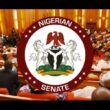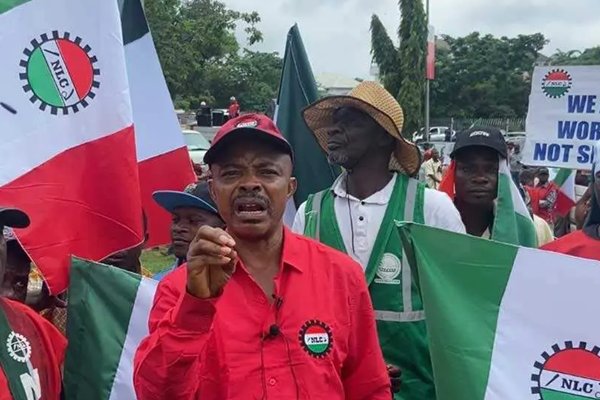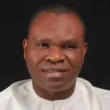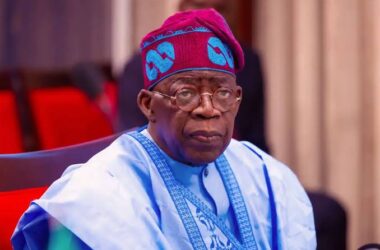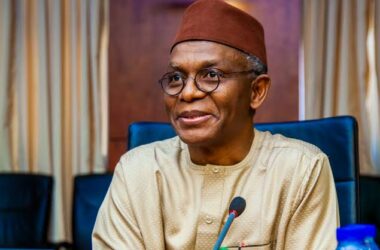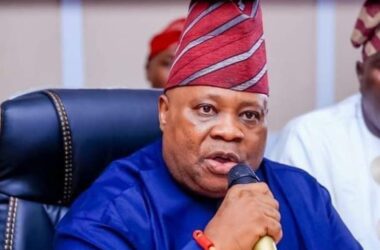The Nigeria Labour Congress (NLC) has accused President Bola Tinubu of betraying organized labour by using the price of Premium Motor Spirit, commonly known as petrol, as leverage during minimum wage negotiations.
This accusation was made by the NLC President, Joe Ajaero, during a two-day workshop in Lagos focused on the implementation of the N70,000 minimum wage.
Ajaero recounted that during discussions with the President, Tinubu presented two choices to the labour representatives. They could either accept the N70,000 minimum wage without further increases in petrol prices or opt for a higher wage of N250,000, which would come with a significant hike in the price of petrol. Ajaero explained that the NLC decided to accept the lower wage offer of N70,000, considering the adverse effects that higher fuel prices would have on the Nigerian population.
The NLC president stressed that despite their decision to accept the lower wage, the recent hike in fuel prices has eroded the benefits of the N70,000 wage, which has not even been fully implemented. He expressed concern over the worsening economic situation in the country, with many Nigerians facing increasing hardship due to rising inflation and the high cost of living.
“There is a tactic to distract our attention, to call us names, level allegations against us over cybercrime, financing terrorism, sponsoring terrorism and the rest.
“Those things have paid off because while we are facing those allegations, this issue of pump price has remained.
“I repeat, we were betrayed by Mr President, That statement we issued over our being betrayed is being denied by officials of the government. I am repeating it that we were betrayed. Some of you here were at the meeting when Mr President said, Ajaero you are the problem,” he said.
Ajaero quoted President Tinubu to have said “Since we said subsidy is gone. You don’t want to allow us to increase again. If you allow me to increase we will pay you that N250, 000.”
He continued “The president said I am giving you one hour to decide on this and get back to me. He said he was going back to his office and we should decide over this (between N250,000 minimum wage and petrol pump price hike).
“We said no sir, Mr President; we can’t be holding our meeting here in your office. Let us take one one-week break and come back and report back to you.
“He said okay, I am travelling but I will cancel my trip for one week. That was how we adjourned for one week.
“If you followed the trend of those negotiations, we adjourned for one week. And when we came back after consultations, we said to Mr President, no, we can’t allow you to increase to any length because that will affect all Nigerians and we will be seen to be selfish.”
“Even the N250,000 will not be useful to us. If we continue to increase salaries, it will make a mess of our economy and then you continue to increase pump price. In fact, that N250,000 may not be enough to even buy fuel.”
He added that “Mr President equally offered to fund our trip to tour some West African countries, where the lowest price of petrol is selling at N1,700. He even said in Cameroon, they are selling N2,000 and that none of them has a refinery but they are getting their products from Nigeria.
“We responded by telling him to check the borders because that is why they are smuggling those products to those countries. We equally said no because Nigerians will say they have given us money; they won’t say it’s money for us to visit those West African states.”
Ajaero said that on the adjourned date, they “went there and told Mr President, we are not here for increase in pump price or negotiation. So let’s concentrate on the minimum wage. Some of these things informed the acceptance of N70,000 minimum wage which some of us here were saying was not enough. But some people are still saying they cannot pay that N70,000.
“This is the dilemma all of us are facing. In fact, the private sector employers in our meeting gave us a tough time. They refused to shift and they wanted to vote with state government, Federal government and the private sector on one side, all against labour on the other side. These were some of the things that necessitated all those walkouts you saw.”




